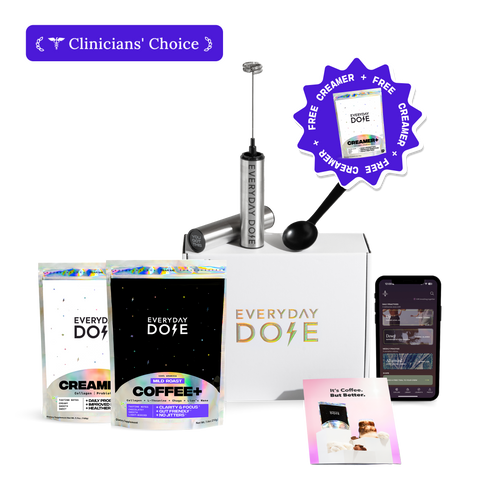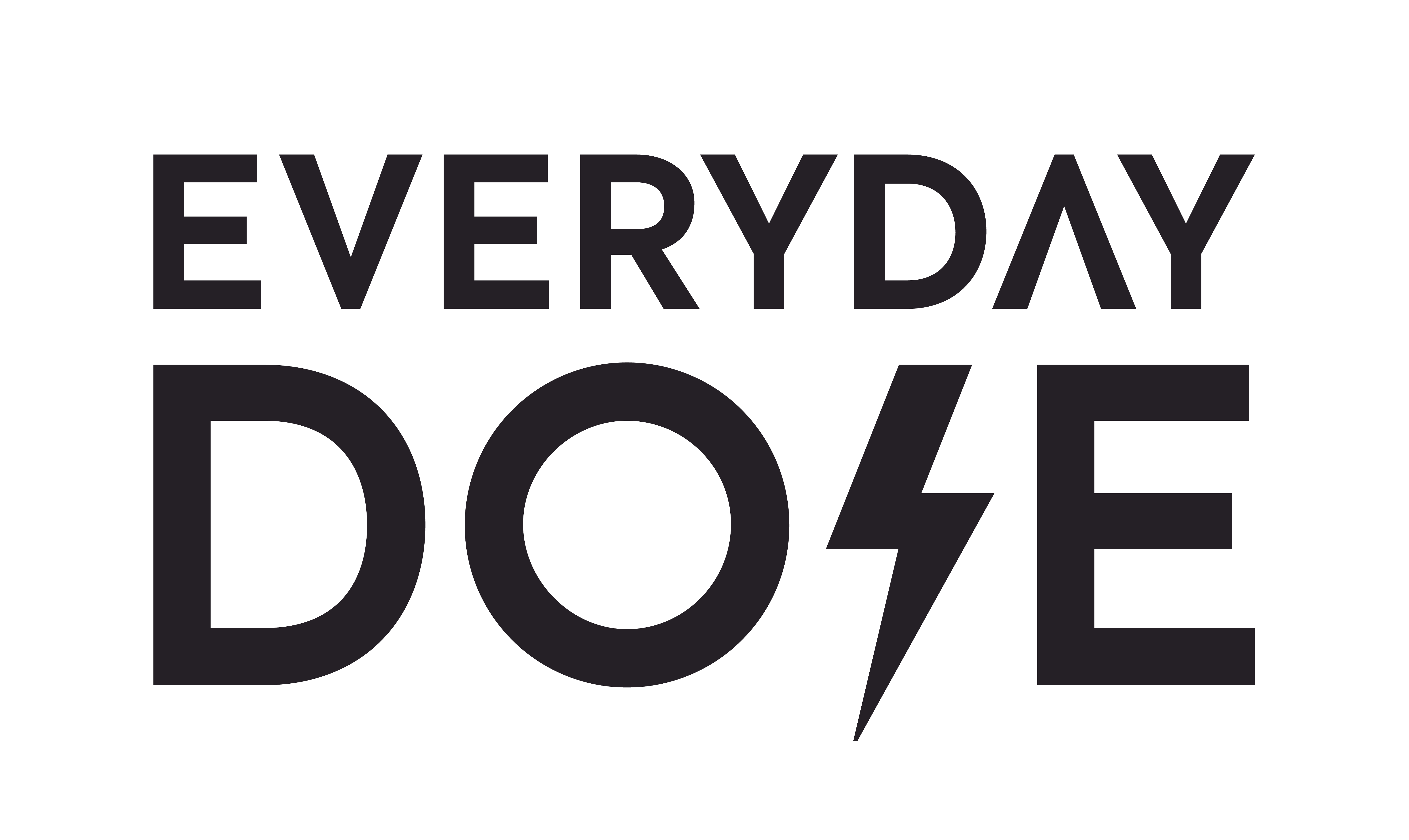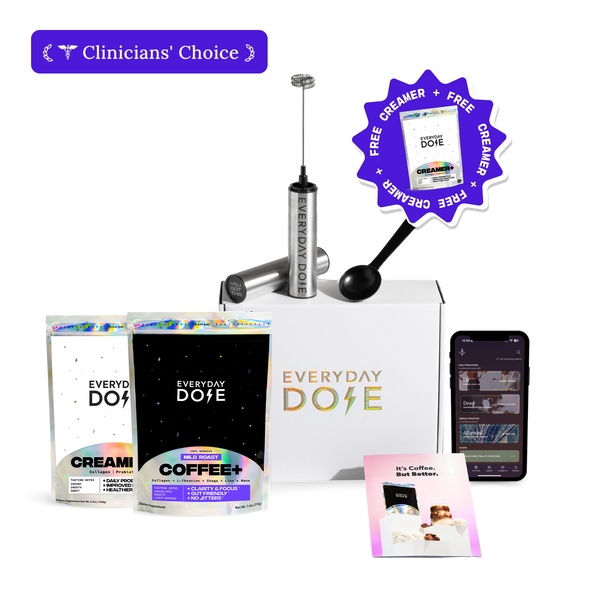Glucosamine vs. Collagen: What the Science Says

Old age isn’t the only reason you might feel a little sore in the joints. Your knees might feel strained after a hard day in the gym, a long walk on a paved trail, or a busy day bending down to pick up after the kids.
If your joints are feeling a little worn down, you’re probably looking for a way to support them and regain the springy step of your past. Some popular supplements for joint health are glucosamine and collagen — but which is better? Read on to find out.
What Is Glucosamine?
Glucosamine is a compound that is a natural part of cartilage all over the human body (and the bodies of some animals). It’s especially noticeable in the cartilage around the joints.
This cartilage acts like a cushion between the joints, helping the bones move smoothly against each other without grinding or scraping. This is why some people take glucosamine supplements to support their joints through stress and age.
Glucosamine supplements are primarily harvested from shellfish. There are also several forms of glucosamine that you can buy, and they each work a little differently.
What Are the Benefits of Glucosamine?
People don’t just take glucosamine on a whim — there are a few ways it can actually support your health. For instance, glucosamine supplements can help soothe pain from both osteoarthritis and rheumatoid arthritis.
Glucosamine may also slow the degeneration of cartilage over time if you start taking it early. Some sources even suggest that it may help with type 2 diabetes.
These supplements can be taken either orally as capsules or topically as a cream or lotion.
What Is Collagen?
Collagen is a structural protein that occurs naturally in the body. It can be found pretty much everywhere, including your eyes, skin, hair, intestines, blood vessels, and joints.
Collagen’s main job is to make sure these body parts maintain their shape. When they get bent out of shape, collagen helps them snap back into place.
Although there are five types of collagen in the body, type II collagen is the most common. However, the body’s production of collagen decreases with age, which can cause wrinkles, sagging skin, and achy joints. You can commonly find collagen supplements in the form of collagen peptides.
What Are the Benefits of Collagen?
Collagen supplements can be taken orally in the form of capsules and powders, or you can apply them topically by using skincare products. Both forms of collagen are widely popular, and for good reason.
The benefits of collagen can include:
- Supports Gut Health: Collagen can support the lining of the intestines, which can encourage smooth digestion and nutrient uptake.
- Encourages Joint Health: Collagen supplements can support overall joint health, easing minor aches and supporting their movements.
- Supports Hair, Skin, and Nail Health: Collagen can help minimize signs of aging like brittle nails, dry hair, and wrinkled skin.
Which Should You Take — Glucosamine or Collagen?
If your joints are your main concern, you may be wondering which is best to take: glucosamine or collagen. Ultimately, the answer depends on what benefits you’re looking for, what’s available to you, and your unique health history.
Desired Benefits
Clearly, both supplements can support joint health and encourage comfort. Collagen is more widely studied in this context, so there’s more research behind its use.
Take a look at the other benefits of each supplement. If you want to support your gut and skin as well as your joints, you may want to choose collagen. If you want to support your blood sugar as well as overall joint integrity, glucosamine may be a good option.
Availability
One of the most important things to consider when choosing a supplement is what’s easily available to you. Ultimately, the supplements that are the most available will likely be the ones you stick with taking.
As we mentioned earlier, collagen is widely popular. It’s fairly easy to find, and most stores will carry it in some form or another. On the other hand, glucosamine is not as popular, so you might not find it as easily.
Health History
Finally, consider your health history. Do you take any medications or have any preexisting health conditions? Glucosamine may increase symptoms of asthma and cause eye pressure, and it can interact with both acetaminophen and Warfarin. It can also have mild side effects like nausea and heartburn.
You may also want to talk with a doctor or healthcare provider before taking any supplement if you’re pregnant or breastfeeding.
How To Take Collagen
Because most collagen comes in the form of hydrolyzed protein powder, it’s pretty easy to take. The dosage will depend on the brand and how much collagen is in the formula, but most of the time, you’ll start with a scoop of powder.
Many collagen protein powders are completely flavorless, which makes them a great addition to pretty much any recipe you want to add protein to. You can use collagen protein to make protein smoothies, overnight oats, or whatever else your heart desires.
You can also find flavored collagen powder, which might make it a bit less versatile — however, this also makes it more interesting to use. For instance, our Mushroom Coffee + blend features collagen and coffee extract to create a drink that tastes just like a soothing cup of joe. Meanwhile, our Mushroom Matcha+ contains collagen and matcha to give a sweet, earthy flavor.
Wrapping Things Up
Glucosamine and collagen are both popular supplements that can support overall joint health. However, while glucosamine may also help support blood sugar, collagen’s added benefits can include support for healthy skin, hair, and digestion.
Gut health is one of the most foundational parts of human health, which is why in this showdown, we ultimately chose collagen to use in our mushroom formulas. To try the benefits for yourself, shop all of our delicious blends today!
Sources:
Decreased Collagen Production in Chronologically Aged Skin | PMC
Start your day
The Right Way









